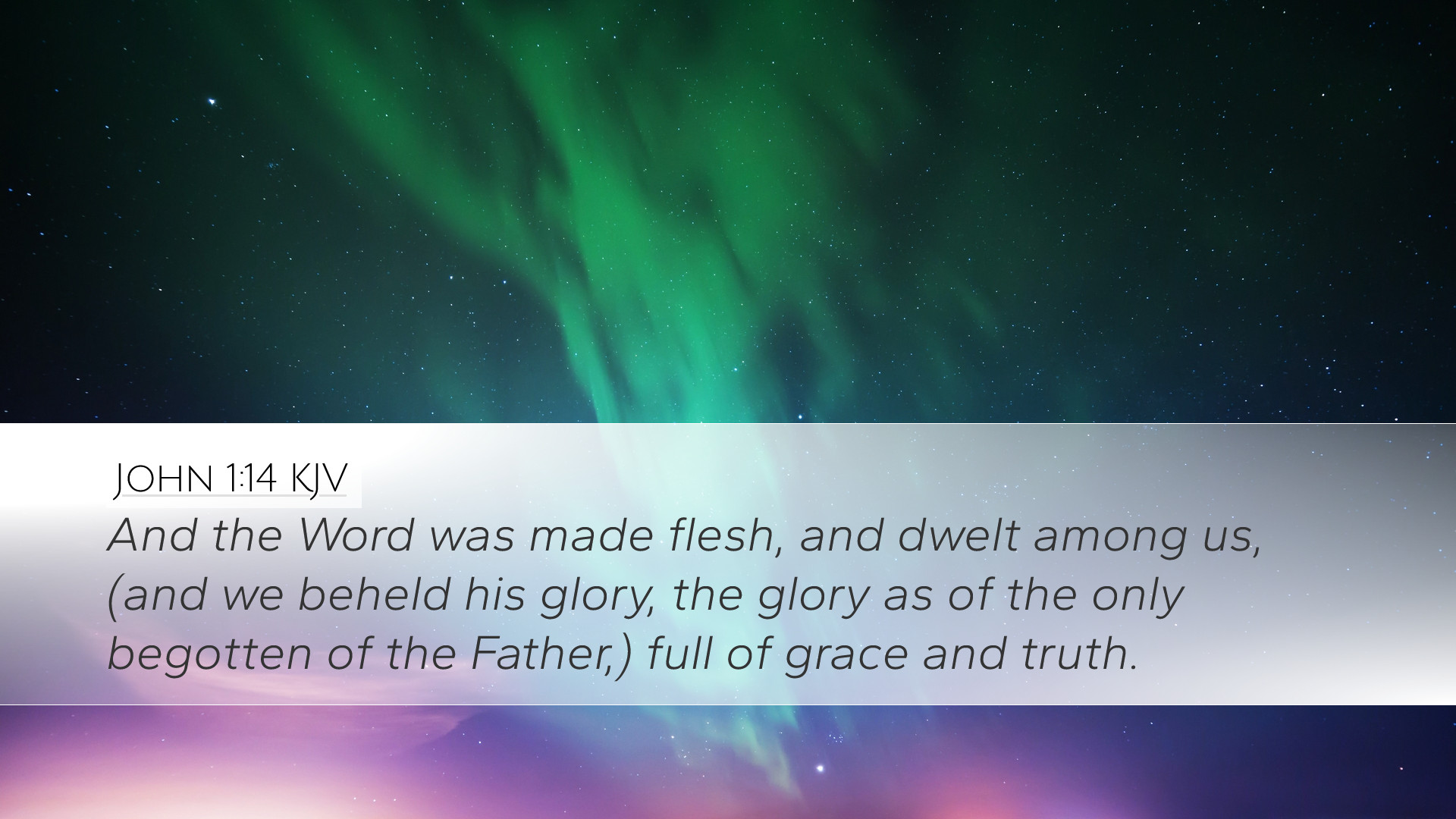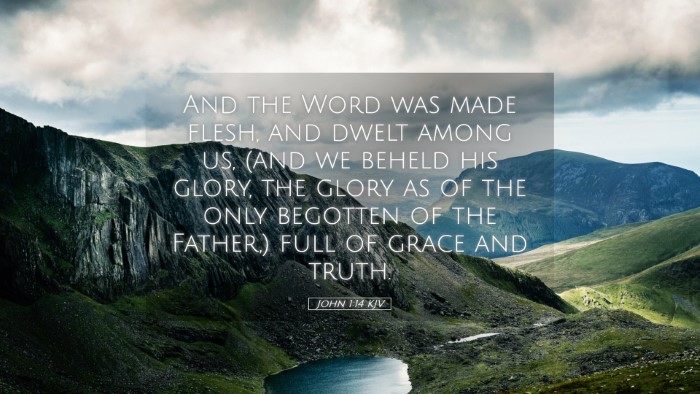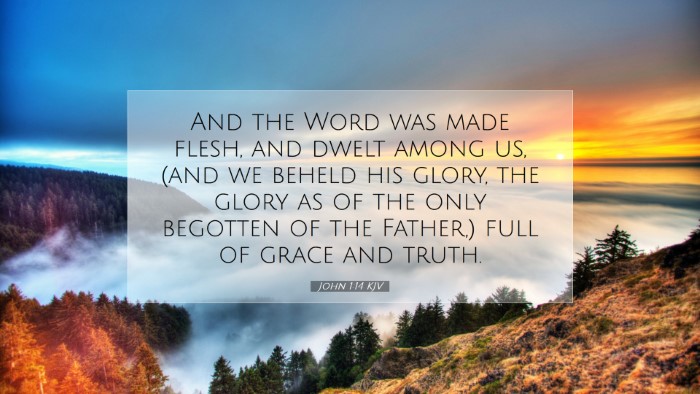Commentary on John 1:14
Verse: "And the Word was made flesh, and dwelt among us, (and we beheld his glory, the glory as of the only begotten of the Father,) full of grace and truth."
Introduction
The profound declaration found in John 1:14 marks a pivotal moment in Christian theology, revealing the incarnation of the Word (Logos) as Jesus Christ. This verse encapsulates the essence of the divine mystery where the eternal Word becomes flesh, bridging humanity and divinity. The following commentary blends insights from Matthew Henry, Albert Barnes, and Adam Clarke to explore its theological significance.
The Word Made Flesh
Incarnation: The phrase "the Word was made flesh" signifies more than a mere change in form; it indicates the unification of divine nature with human nature. Henry emphasizes that this was not a temporary appearance, but a genuine embodiment. The eternal Word takes on human existence, fully participating in the human experience while retaining His divine essence.
Divine Purpose: According to Barnes, this act demonstrates God's purpose to reveal Himself to humanity in a tangible manner. The enfleshment of the Word illustrates God's desire for relationship and communion with His creation. Clarke echoes this, noting that the incarnation serves as God's ultimate revelation, allowing humanity to witness divine truths in a relatable context.
Dwelt Among Us
Tabernacle Imagery: The phrase "dwelt among us" relates to the idea of God dwelling among His people, reminiscent of the tabernacle in the wilderness. Henry draws parallels to the Exodus narrative, where God's presence was localized within the tabernacle. Just as God tabernacled with Israel, so Jesus embodies God's presence on earth.
Immanuel - God with Us: Barnes points out that the use of the term reflects Jesus as "Immanuel," meaning "God with us." This symbolizes not just proximity but the active engagement of God in human history. Clarke further elaborates that Christ’s incarnation offers believers the assurance of God's nearness, comfort, and involvement in daily life.
We Beheld His Glory
Witness to Divine Glory: The phrase "we beheld his glory" suggests a firsthand experience of the divine nature manifested in Jesus. Henry notes that the disciples had the privilege of witnessing the miraculous works and divine majesty of Christ. This visible glory affirmed His identity as the Son of God.
Glory of the Only Begotten: Barnes elaborates that the description "the glory as of the only begotten of the Father" reflects Jesus' unique relationship with God the Father. Unlike any other, Jesus possesses a glory characterized by His singular sonship. Clarke states that this glory manifests in Christ's divine attributes, teachings, miracles, and ultimately through His sacrificial love.
Full of Grace and Truth
Grace of Christ: The phrase "full of grace" emphasizes the abundance of grace found in Christ. According to Henry, grace denotes unmerited favor, and in Jesus, grace flows freely to sinners, offering redemption and reconciliation. His life and ministry exemplified grace in action—a divine kindness extended to those who did not deserve it.
Truth of God: Coupled with grace, the term "truth" signifies the faithful and unchanging nature of God. Barnes notes that truth here embodies the reality of God's promises and the authenticity of Christ’s message. Clarke further identifies truth as an essential characteristic of God, and in Jesus, both grace and truth align perfectly, revealing a God who is both compassionate and just.
Theological Implications
This verse has profound theological implications. The incarnation affirms the Christian belief in the dual nature of Christ—both fully God and fully man. This unique union is essential for understanding the work of salvation, as only one who is fully human can atone for humanity’s sins, and only one who is fully divine can effectively mediate between God and humanity.
Furthermore, John 1:14 reinforces the concept of God's immanence. Through Jesus, God communicates with humanity in a personal and accessible way, encouraging a relationship built on intimacy rather than distance. This understanding shapes not only individual belief but also collective worship and community life within the church.
Conclusion
John 1:14 serves as a cornerstone of Christian faith, inviting believers into a deeper understanding of who Jesus is as the incarnate Word. The reflections from Henry, Barnes, and Clarke remind us of the richness of this verse, emphasizing the grace, truth, and glory found in Jesus Christ. It challenges pastors, students, theologians, and scholars to explore the depths of this mystery and to communicate its transformational power in their ministry and study.


